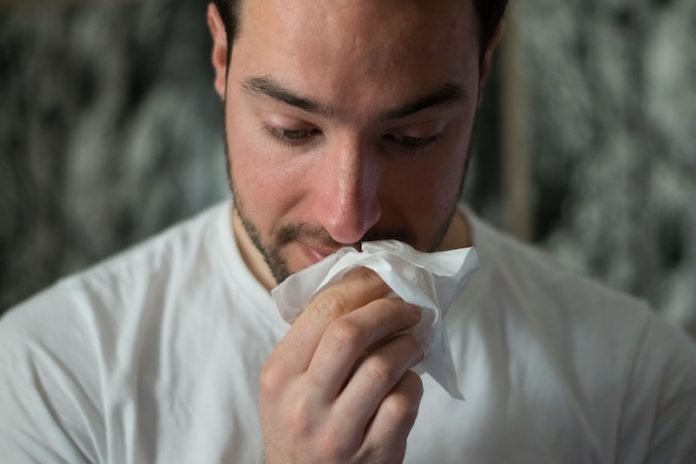
In a new study from the Queen Mary University of London, researchers found people with allergic conditions such as hay fever, rhinitis, and atopic eczema may have a lower risk of COVID-19 infection, especially if they also have asthma.
And contrary to the findings of recent studies, the team found older age, male sex, and other underlying conditions aren’t linked to a heightened risk of infection.
But Asian ethnicity, obesity, household overcrowding, socializing indoors with other households, and holding down a people-facing role other than in health and social care are all independently associated with a heightened risk of developing COVID-19.
In the study, the team captured detailed information on potential risk factors for the infection among UK adults between May 2020 and February 2021.
Out of 16,081 eligible people, 15,227 completed at least one subsequent monthly follow-up questionnaire 30 days or more after joining the study; and 14,348 completed the final questionnaire on or before 5 February 2021.
The researchers found some factors consequently emerged as being independently associated with increased odds of developing COVID-19.
People of Asian/Asian British ethnicity were more than twice as likely to become infected as their white counterparts.
Similarly, household overcrowding; socializing with other households in the preceding week; the number of visits to indoor public places; a people-facing role other than in health and social care; and overweight/obesity were all associated with a heightened risk.
And the greater the number of people sharing a household and the higher the number of visits made to indoor public places, the higher were the odds of becoming infected.
But atopic (triggered by allergens) disease, which includes eczema/dermatitis and hay fever/allergic rhinitis, was linked to 23% lower odds of developing the infection than it was in those without atopic disease or asthma.
And among those who had atopic disease and asthma, the risk was even lower: 38%. This association held true even after factoring in the use of steroid inhalers.
The team also found taking drugs to dampen down the immune system response (immunosuppressants) was linked to53% lower odds of COVID-19 infection.
Age, sex, other medical conditions, diet and supplement use weren’t associated with infection risk.
The study is published in the journal Thorax. One author of the study is Hayley Holt.
Copyright © 2021 Knowridge Science Report. All rights reserved.



